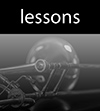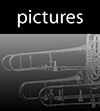ITA Interview: Audition Success
The following was an interview conducted between Toby Oft and Dennis Bubert published in the ITA Journal in 2009 and includes some useful information about taking auditions
DB: Congratulations on your new position, Toby, and thanks for taking time to visit with us. I think a lot of people in the trombone world are interested in knowing more about you and hearing about your particular journey to the principal trombone chair in the Boston Symphony. I think as we’re talking today, you’ve probably just been in the BSO for a few weeks and the orchestra is just back from a performance of Tchaikovsky 6 in Carnegie Hall. What’s it like to sit down in one of the world’s premiere ensembles for the first time?
TO: When I came to Boston in late August much of the orchestra was still en route from Tanglewood so I had the whole hall to myself. The first thing I did was sit down on stage and play a Rochut Bordogni etude to an empty hall. Johannes Rochut was once the Principal Trombone of the Boston Symphony as well so it was very special to me. As I meet colleagues here for the first time I immediately sense there is a tremendous feeling of history and artistic legacy at Symphony Hall. Of course it is an honor to play here, but at its core, for me, the BSO is a beautiful legacy to be a part of.
DB: As I understand it, your dad was your first trombone teacher and your earlier focus was on jazz playing. Do I have that right? What were the circumstances that led you to change your concentration to the classical side of things?
TO: You are correct. My dad taught me to play trombone from age 6. He would teach private lessons to area trombone students on our back porch and I guess I decided I was ready to learn with everybody else. By the time I was in junior high school I was helping him teach as much as I could. I can’t say it made a big difference starting so young, but it did instill a practice ethic that I carry with me still. My dad was a middle school band director and retired about 10 years ago. He has a lot of trombone students in his studio now. I guess retirement is relative to spending time doing what you love.
I played classical and jazz trombone throughout high school with the sense of foreboding that some day I would need to choose one or the other. For the longest time I wanted to be someone who could do both equally well. However, as I began more than casual study of both, I could see that the amount of dedication necessary to succeed in jazz or classical would require me to focus my studies on just one.
My ultimate decision to switch to classical trombone exclusively is for two reasons. The first time I ever played in an orchestra was when I was 17. I went to Spain with a college orchestra that needed a last minute replacement. We played the New World Symphony in cathedrals throughout the Balearic Islands and I was blown away by the rich harmony and textures washing over me every moment as I sat in the ensemble and I knew I wanted to explore it further. I was also very inspired by Nathan Zgonc, a friend of mine with whom I grew up who is blessed with a real gift for beautiful orchestral trombone playing. Nathan is 2 years older than me and very much like the older brother I never had. He is also a very good viola player so in addition to a fantastic singing sound on the trombone, he has a tremendous sense of phrasing and orchestral sound. We grew up in neighboring high schools and because we were so highly competitive, I never told him how much I admire his playing and facility.
DB: Can you tell us a little about your formal training—where you went to school and who you studied with?
I started classical trombone study with Peter Ellefson when I was a junior in high school and to this day he is still my mentor. At the time he was the newly appointed second trombone with the Seattle Symphony Orchestra and I would make the trip up from Portland to see Pete twice a month to play solo repertoire and occasionally some excerpts. I went to Oregon State University to study with Warren Baker for two years before I transferred to Indiana University to study with Scott Hartman and M. Dee Stewart.
Indiana changed my life because of the sheer amount of fantastic trombone players and ensembles. I really thrive on competition but with 5 orchestras and a great faculty I feel I was able to gain valuable experience as well. I went to Northwestern University for graduate school to study with Michael Mulcahy and graduated in 2000. Hearing live concerts of Chicago’s Lyric Opera and the Chicago Symphony Orchestra brought my ideas of tone and orchestral playing to a whole new level.
DB: Toby, I know that you were in San Diego last year, but you held several positions prior to that didn’t you?
TO: My first position won by audition was Principal Trombone of the Northwest Indiana Symphony in 2001. It was a great job because I didn’t have to move from Chicago to do it. I could maintain a teaching and free lancing schedule as well as continue taking lessons from Jay Friedman and Ward Stare. After about a year I won my first full time job playing a one – year Principal Trombone position in the Florida West Coast Symphony when Mark Salatino left to play 2nd Trombone in the Rochester Philharmonic. Although I loved the job in Florida, I knew that in my best – case scenario, Mark Salatino would choose not to return and I would be required to win another audition for the permanent position just to keep the job I had already won. I practiced with more dedication that year than I ever have in my life and it paid off when I won the re-audition later that season. It was the realization of a true aspiration to be in a full time position in an orchestra. The position in Sarasota was made even better by the fact that a large part of the job was playing in the Florida Brass Quintet.
In addition to practicing and listening a great deal, something that helped me a lot when I was in Florida was being able to make a few trips up to New York for lessons with Dave Finlayson, Per Brevig, and Joseph Alessi. John Swallow just happened to have retired to Sarasota about the time I arrived and I spent more time learning from him than any teacher since I left college. In retrospect, meeting him and having the opportunity to learn his approach to the trombone was probably the luckiest thing that happened to me my whole career. We’ve since both left Sarasota, but I wouldn’t be where I am today without his help.
After 2 seasons in Sarasota, the Buffalo Philharmonic was faced with the tragedy of losing their Principal Trombone, Scott Parkinson, as a result of fatal heart attack. I greatly respected him as a person and a player and it was my honor to play in his stead for a year before they could hold the audition for his position. I took a leave of absence from the FWCS and left for the chilly snowy BPO. I loved playing in Buffalo and was disappointed to leave such a fine orchestra.
One thing I did when I was in Buffalo was that I began taking a lot of European auditions because I was very inspired by stories of working abroad from my friend Jamie Williams. Jamie plays Principal Trombone in the Dortmund Philharmonic in Germany. I had relative success with European auditions such that I was invited for a month to play Principal with the Tonhalle Orchestra, Zurich. I ultimately returned to my position in Florida for another year with resolve to keep taking auditions in the U.S. and abroad in hopes that I would achieve greater success. After 6 months I did in fact win Principal Trombone here in the U.S. with the San Diego Symphony.
DB: It seems that you have experience with a good many auditions. Is there anything you can specifically point to that you did crucially different in preparation for the Boston Symphony Orchestra audition?
Jeff Reynolds gave a master class in Chicago once and he mentioned that in most cases if you begin preparing excerpts as soon as the audition is listed it’s too late. I have been working on a love affair with every excerpt for the past 9 years that in many ways has become a self – perpetuating cycle. I think the timing of the audition created a practice environment where I was forced to depend on work I have already done.
One of the most difficult things for me to balance in audition preparation over the past few years is finding the physical stamina to prepare well for audition opportunities and to do well in my current position. The audition “season” is typically early to mid spring and that’s generally a very busy time for most orchestras. Historically, I probably practiced a little harder than I should have for a lot of auditions, but because of many issues out of my control as well as prior commitments around San Diego, there simply wasn’t time to over practice for the Boston Symphony Orchestra audition.
In addition to Masterworks, Opera, and Pops at the San Diego Symphony, my wife Andrea was stuck in the hospital for several months on prescribed bed rest and doctor observation due to complications with her pregnancy so in addition to any practice, I was running to the hospital a couple times a day. Much earlier in the season I had also agreed to play the Gröndahl Concerto with the San Diego Symphony Orchestra and it happened to fall the week leading to the preliminary round in Boston. Ultimately everything turned out for the best (especially Andrea’s pregnancy!) but with circumstances as they were, I found I had little time or mental energy to over do anything. I would add that there is a great sense of community in the SDSO and I had a lot of help and support managing the situation from my friends in the orchestra.
Knowing the limitations of my schedule, I knew I needed to do some careful planning. My strategy had to depend on previous work that I had done for all the other auditions I have taken. I decided to practice less than I normally would for any audition and discuss the repertoire from a stand – point of phrasing and tone color with those whom I admire and trust.
I drove up to Los Angeles several times to play through the list for Steve Witser who was very helpful and generous with his time. I also played for a few conductors in the area who, in addition to making me very nervous were able to argue advanced ideas of phrasing from a musical perspective that did not include the biased knowledge of any limitations inherent to the trombone.
I had hoped to make a trip to Chicago to visit and play for Michael Mulcahy but was constrained by limitations of the busy San Diego season and Andrea’s pregnancy that ultimately restricted my travel. Instead, Mr. Mulcahy and I had several long phone conversations about every excerpt on the BSO list. It turned out to be a fantastic exercise that helped me immeasurably.
Our children, Colin and Luci were born on February 29th and we did our best to adjust to the BSO audition schedule. Although it sounds like a lot to handle I think the birth of our twins was the best thing for me. M. Dee Stewart told me once, “Auditions can’t be the most important thing.” I never really understood that until my kids were born. They gave me a wider scope on the audition process in general. I can’t think of anything else that could give me the perspective of auditioning for Principal Trombone of the Boston Symphony where I could know, “yes it is a big deal, AND it is not the most important thing in the world.”
DB: There are probably a number of younger players reading this who would have a LOT of questions for you about auditioning. Could I ask you two things, one, to share your audition history with them, and, two, is there any advice—either in general, or specifically—that you’d like to offer regarding auditions?
TO: Many things like range and endurance came very slowly for me but I didn’t believe in making excuses when I was brought up with such a strong work ethic. Truthfully, I know how to work and I always hoped that diligence and optimism would be enough. I hear amazing talent when I go to any audition – players with incredible high range and flexibility that makes my hair stand on end to hear such tremendous facility on the trombone.
That said however, I feel that most music students in the U.S. (including myself) face a vast deficit of knowledge when it comes to audition preparation of orchestral and opera repertoire. There was no orchestra at my high school and I would suggest that is pretty consistent with most American trombonists.
When we prepare for an audition for the first time, much of our work is done simply learning the repertoire. We do our best to learn the excerpts off the page by using a tuner and a metronome – which is extremely beneficial but only gets an artist so far. After seeking comments from auditions in Germany, Switzerland, Luxembourg, and Spain I saw this is like trying to paint a masterpiece using a method of paint by numbers or connect the dots. I was blown away at European auditions by the phrasing mastery of local candidates who had grown up listening to and performing orchestral repertoire as a matter of cultural identity. They seemed to have very strong and well – researched opinions as to their own sense of style. Comments from audition committees also seemed to reflect less on how many notes I missed but more to the effectiveness of my phrase architecture.
After my experiences abroad, I decided to look at audition excerpts from a new perspective of character study where variations in timbre and expressive articulation were as important as pitch and rhythm. We often go to auditions trying to play note perfect, in time, in tune, and end up saying nothing of artistic value when audition committees would be grateful to hear anybody say something. I found success in the U.S. and abroad in large part when I decided to treat each excerpt as though I was playing a different role in a play in which I am the sole voice of each passage. Of course there are dismissable characteristics of rhythm and pitch in every audition but my point is that rhythm and pitch can only be small components of the means to a greater musical goal for each excerpt.
I would be remiss if I did not mention that every committee is different. Unfortunately some really are just counting missed notes. An artist has to make peace with the fact that if playing note perfect is expected and regarded as the height of artistic expression, then you may not enjoy playing in that ensemble anyway. I’ve had the greatest progress in auditions and with performance practice in general when I can effectively disconnect myself from any expectations of perfection.
Philosophy aside however, the audition formula that worked the best for me is as follows:
- Get invited and acquire the list of repertoire as soon as possible.
- Listen to everything on the list with a metronome handy and take special note of the tempi, articulations, and relative dynamics of great recordings when they get to the trombone excerpts required.
- Practice with a tuner and a metronome to be sure the nuts and bolts crucial to the fundamentals of each excerpt fit together well.
- Play with your favorite recordings “karaoke style” to get a better idea of phrasing and dynamic contrast with an ensemble. Audition committees like to be convinced you have a good sense of what else is happening during audition excerpts and apart from actual experience performing the repertoire this exercise can generate a clear sense of orchestral context.
- Become your own best teacher by playing excerpts for a tape recorder making critical notes on what you want to improve like timbre, articulation and dynamics. Allow those specific elements to be the driving inspiration for your practice session.
- As you begin to stray from strict rhythm in solos and excerpts where required like Mahler 3, your rhythm should still be convincing. Imagine you’re driving 60mph down a curvy highway and the committee is in another car 10 inches off your bumper. It is possible to convey variations in your speed and direction such that you won’t cause an accident or conversely pull away from the committee or an accompanist. You should get to a point that an observer can still anticipate a clear pulse through each excerpt while you perform.
- Play for people who make you nervous and talk to those whom you respect about good phrasing like mentors, and conductors - don’t limit yourself only to trombonists. There are many ways to play each excerpt stylistically well and finals typically have committees asking a candidate to play differently. Therefore, it is imperative you demonstrate an ability to change style quickly and effectively when necessary.
- Guard your confidence. It’s nearly impossible to play well if you don’t feel good about yourself. Be aware of those who have a negative effect on you and limit your time with them.
- At the audition do your best to have a regular day. Quite often we put so much pressure on ourselves to have an extraordinary day of playing that our nerves can actually paralyze us in effort to accomplish playing that is beyond ourselves. No pressure – if you win or lose you’ll still practice tomorrow.
- There is tremendous clarity after the audition is finished - a knowledge that if you could turn the clock back 2 – 4 weeks and augment preparation one way or another you know you could play at least 50% better. John Swallow gave me this advice and it is possibly some of the best I’ve ever received: Before you go out to see friends and celebrate, it is important that you take time to write down what you would do differently to try and capture more success at subsequent auditions. I came to truly enjoy this clarity of thought no matter what the outcome of the audition and it helped me look at auditions as successful no matter the outcome. Admit that everyone is different and sometimes it takes a few auditions to arrive at your own recipe for success.
For a long time I felt that there is no such thing as luck at auditions but after so many I’ve come to the conclusion that there must be. There are a great deal of variables outside the candidate’s control that even though we do our best to anticipate, it is impossible to prepare for them all. I look at auditions as chess games that we chance upon where the game is setup askew. The committee is already seated on one side and we have the choice to either sit down and play the game or walk away. Once we sit down to play there is no sense wasting energy complaining that it is unfair or perhaps isn’t what we expected. All we can do is honor the game and enjoy playing it as much as possible. We can take pride in the fact that we had the courage to sit play the game at all, knowing full well we sacrifice our pride in the process.
A perfect audition doesn’t always equal a job. I’ve played auditions of my life where they dismissed everyone but me and I still did not win. Conversely I have also played what I thought was very poorly and been offered the position. Take pride in the fact that you stared opportunity in the face and didn’t turn away to avoid a possible defeat.
I’ve heard players say things like “Well, I’m going to take 5 (or 10) auditions, and if I don’t consistently make finals, or at least advance, I’m going to quit”. Any thoughts on that?
I am very envious of those who only take a few auditions before they realize tremendous success. For me, progress came very slowly. I made a dramatic embouchure change right before I left Indiana University that essentially hit the reset button on my playing – I mean quite literally I couldn’t make it half way through a Bordogni etude. I hoped that it would be a quick process to get back where I was, but even when I completed study at Northwestern a year later I was still having difficulty with high register and endurance. Fortunately, my masters recital was successful but there was still much work to be done.
I took a shameful amount of auditions where I would think my chops were making progress and then show up to the audition and feel like I’d changed my embouchure that morning. I mean I really felt like I had just had a shot of Novocaine! I remember probably more than 10 or 15 auditions early on where I’d cave on Bolero or William Tell and come away thinking, “I should probably go into real estate.” But Pete Ellefson told me something a long time ago that gave me great hope and I carry with me even today, “Hard work trumps talent every time.”
After a while I stopped counting how many auditions I attended and chose to look at things much more long term. I had to find satisfaction in much more gradual success. I hear such fantastic talented young trombone players at music schools around the country, and I want to shake them by the shoulders and say, “if I can do it, I KNOW you can!” The recipe for my success was made up of determination, hard work, and a refusal to rest when opportunity is out there.
DB: Toby, can you describe your approach to the instrument itself? Any general thoughts on practicing, performing, or even equipment choices?
TO: I have found that practicing is similar to being your own physician or psychologist. We visit with our teacher to gain greater perspective on how to diagnose and treat our playing process but most often that gets us only part way there. Great mastery of the trombone comes from knowing yourself. We have great unlocked talent in all of us that often can’t seem to circumvent dogmatic idealism of how we think things are supposed to be e.g. bigger equipment is better (even though it often robs clarity and high range) or what the “perfect embouchure” should look like.
What do you need to do to play the sound and song in your mind? This answer isn’t the same for everyone and often takes a good bit of patience, humility, and intuition from ourselves and from a few dedicated teachers to help us get close to our artistic goals. I feel like I started truly improving when I stopped looking for the last word from any one person on technical and musical issues. The right answer is typically an amalgam of several different sources combined with a keen knowledge of self.
Performing a concert or an audition is generally an example of our adaptability. In addition to our own ideas of what we desire to contribute artistically, we must keep ourselves dynamically responsive to the situation at hand as we balance our own expectations, the tendencies of our colleagues, and the expectations of the conductor with our resources and abilities at any given moment. I enjoy the leadership and creative license of being a principal player but have found that in most situations it takes self – confidence combined with humility to inspire and participate in the artistic expression of a group. A strong foundation of fundamentals, a clear idea of pacing, and communication done largely without words with everyone involved generally makes for a successful performance.
DB: Obviously, the trombone is a big, big part of your life. Do you have any other interests outside of the musical arena?
TO: I used to have hobbies and interestes like cycling and even video games. One thing I still do that Stefan Sanders got me excited about when I lived in Buffalo is roasting my own coffee beans. Now that Andrea and I have twins they take most of the extra time I have outside the orchestra. The one interest that I feel innate to my upbringing is teaching. Although it doesn’t take me too far from the trombone, now that I am in a place of greater influence than I have ever been before I feel a very strong desire to help other players find their own success. I have had a lot of teachers take great care and patience to help me on what turned out to be a long and curvy road. I hope that in the same way I can effectively help trombone players with similar goals realize their dreams and potential.









